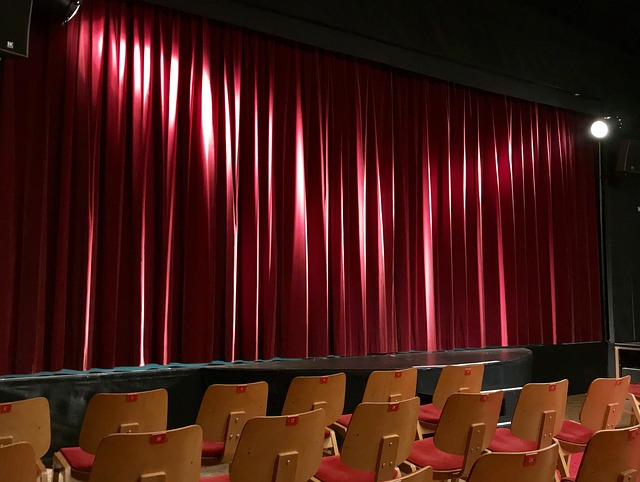Marxism and Leisure Redefining Free Time in the Modern Era
Marxism has traditionally focused on the dynamics of labor, capital, and class struggle. Yet the concept of leisure, or free time, has quietly emerged as a crucial site for understanding how people negotiate power, identity, and community within modern societies. In this exploration, we investigate how Marxist analysis reshapes the conversation about leisure, revealing it not merely as a passive escape but as an active realm of social transformation. By tracing historical developments, contemporary challenges, and policy implications, the article aims to illuminate the ways in which free time can be reclaimed as a space of resistance and collective enrichment.
Historical Context: From Industrial Leisure to Post‑Industrial Play
In the nineteenth‑century industrial landscape, work hours stretched beyond the circadian rhythm, leaving little room for leisure. Marx’s critique of alienation framed this lack of free time as a symptom of capitalist exploitation. However, the late nineteenth and early twentieth centuries witnessed a burgeoning movement for leisure reform. Labor unions campaigned for shorter workweeks, while the nascent middle class embraced leisure activities as symbols of status and self‑realization. This historical shift set the stage for Marxists to interrogate leisure not as a byproduct of capitalist abundance, but as a contested site where class relations manifest and can be contested.
Marxist Theory of Labor and the Re‑definition of Work
Marx’s notion of surplus value positions labor as the engine of capital accumulation. By extension, the surplus time that workers generate after fulfilling their labor obligations can be seen as a form of surplus value, albeit one that is socially unacknowledged. Marxists argue that free time should be reclaimed as a right of the working class, allowing individuals to pursue personal development, communal solidarity, and critical consciousness. In this view, leisure becomes a strategic resource, a means to question and resist the structures that impose alienated labor.
Key Marxist Concepts Applied to Leisure
Several Marxist concepts illuminate the politics of leisure:
- Alienation – Even leisure can be commodified, transforming enjoyment into market exchange.
- Historical Materialism – Leisure practices reflect the material conditions of a given era.
- Class Consciousness – Shared leisure activities can foster solidarity among workers.
When leisure is organized around class consciousness, it challenges the passive consumption patterns that capitalist societies encourage.
Contemporary Challenges: Gig Economy and Digital Surveillance
Today’s gig economy and pervasive digital technologies reshape the boundaries between work and free time. Platform workers often find their hours blurred by algorithmic scheduling and data tracking, which erode the certainty of leisure periods. Moreover, social media platforms monetize attention, turning every moment of free time into a potential advertising opportunity. Marxist analysis exposes how this surveillance capitalism perpetuates the exploitation of surplus time, ensuring that even moments of supposed respite contribute to capital accumulation.
Digital Commodification of Leisure
In the digital age, leisure activities such as gaming, streaming, and social networking are not neutral. They are embedded in monetization models that reward data collection, targeted ads, and micro‑transactions. Marxist theory describes this as a new form of exploitation, where consumers exchange their time and attention for free content, which in turn fuels profit for platform owners.
Reclaiming Free Time: Grassroots Movements and Collective Action
Across the globe, workers are forming cooperatives, community centers, and digital platforms that prioritize shared leisure over profit. These initiatives seek to subvert capitalist logics by redistributing leisure resources, offering free or low‑cost recreational activities, and fostering peer‑to‑peer learning. Such movements exemplify how Marxist principles—particularly the idea that collective ownership can liberate surplus time—manifest in concrete, transformative projects.
Case Study: Community‑Run Sports Clubs
In several European cities, former factory workers now manage sports clubs that are owned and run by local residents. These clubs provide free access to facilities, organize training sessions, and create forums for discussing worker rights. The clubs serve dual purposes: they offer recreation and also function as social hubs where workers develop class solidarity, share experiences, and mobilize for broader labor campaigns.
Policy Implications: Toward a New Work‑Leisure Regime
Policymakers face the challenge of balancing productivity with meaningful leisure. Marxist scholars advocate for structural changes such as a guaranteed basic income, a reduced standard workweek, and public funding for cultural and recreational infrastructure. Such policies would decouple leisure from market demands, ensuring that all citizens can enjoy free time without being coerced into labor for survival.
Suggested Legislative Reforms
- Implementation of a 30‑hour workweek with overtime protection.
- Establishment of state‑run leisure centers funded by progressive taxation.
- Mandated data‑privacy regulations to limit the monetization of individual leisure choices.
- Incentives for businesses that promote employee access to paid recreational programs.
These reforms would institutionalize leisure as a public good, aligning with Marxist ideals of collective well‑being.
Conclusion: Leisure as a Site of Resistance and Reconstruction
Marxist theory invites us to view leisure not as a passive diversion but as an arena where power dynamics unfold and can be contested. By re‑examining the production and consumption of free time, we uncover opportunities for solidarity, creativity, and social justice. The convergence of grassroots initiatives, digital activism, and progressive policy proposals demonstrates that reclaiming leisure is both a practical and philosophical endeavor. Ultimately, reshaping our relationship with free time can transform the way we experience life, fostering communities that value human flourishing over relentless productivity.


